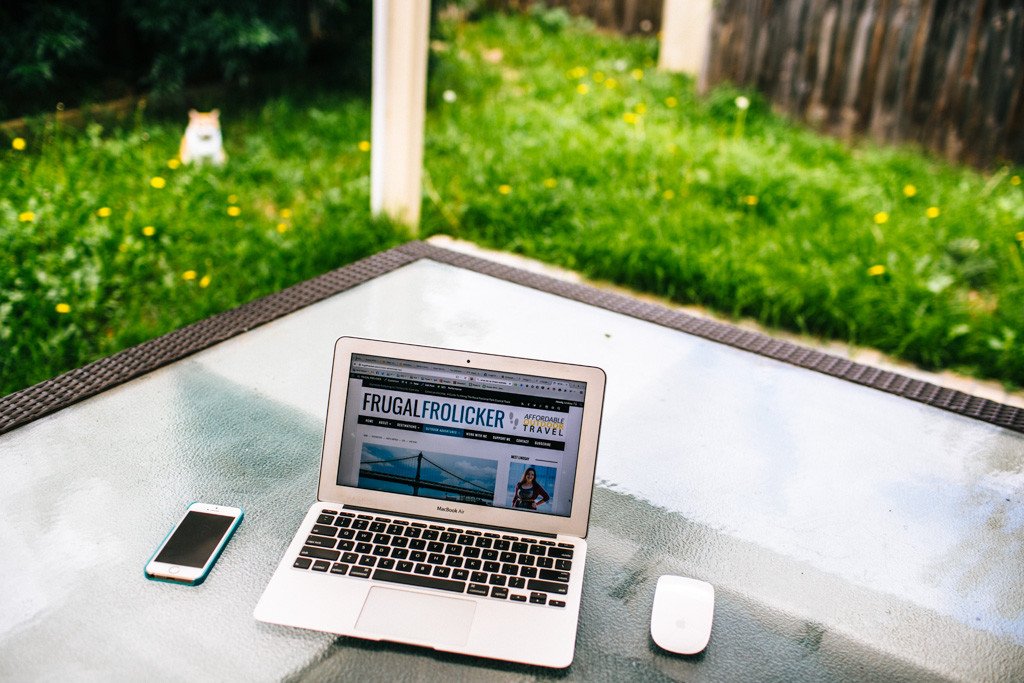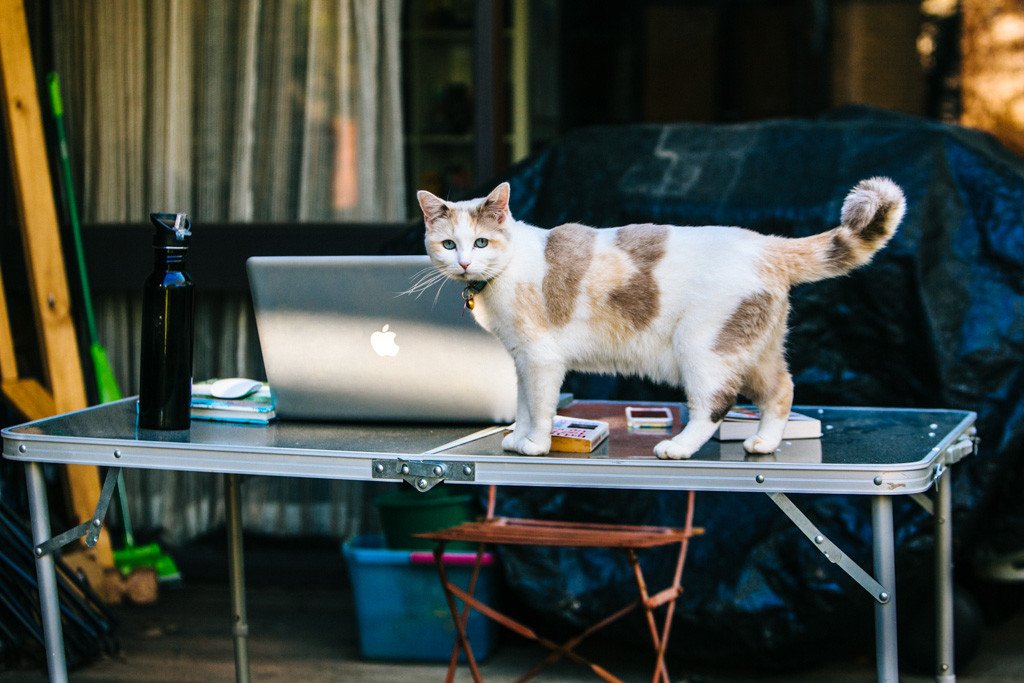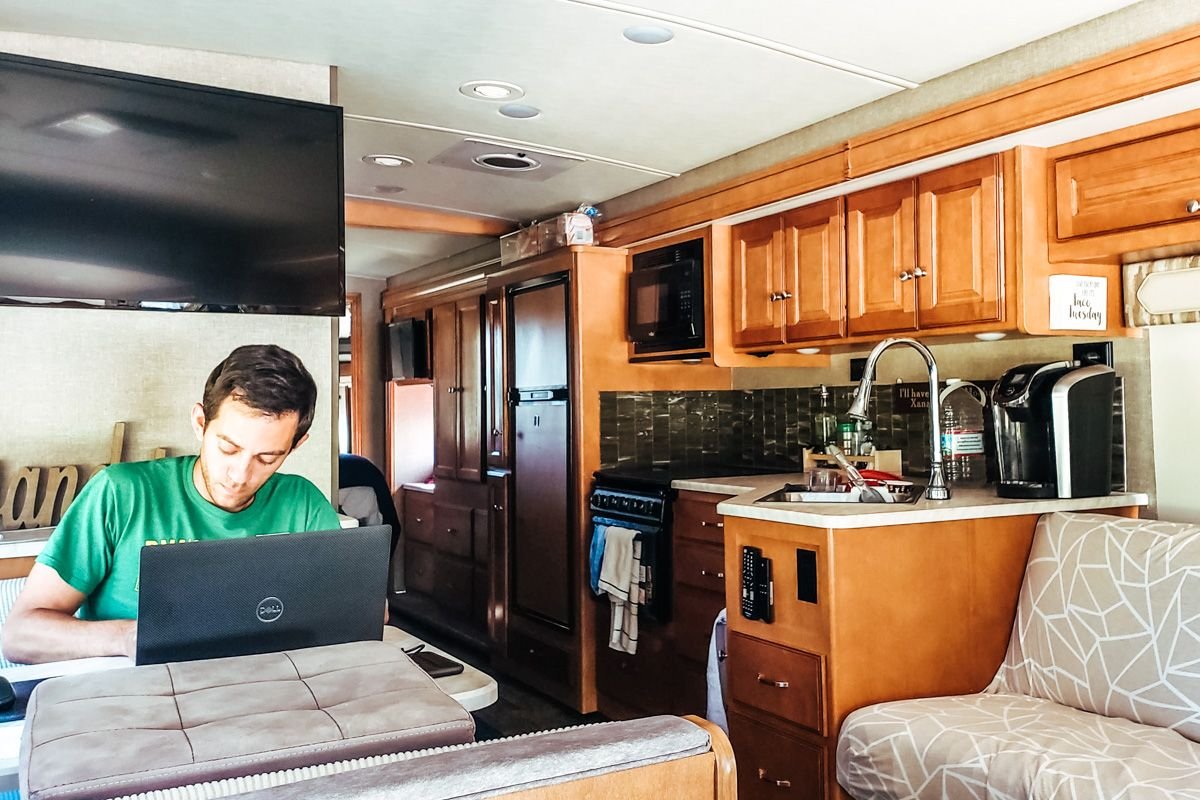This post was last updated on 2022 July 3
This is a guest post by Luxury on Points.
—
So you want to know how to start a freelancing business from scratch? Great! I’ve had good experiences as a freelancer, and it’s something you can do full-time or on the side, whether you’re a digital nomad or just someone who wants to try it out.
In this article, I’ll discuss how to start freelancing work, based on both my experiences as a freelancer and as someone who has hired freelancers to work for me before.
How To Determine Your Niche
Your first step to finding freelance work is to figure out your niche. You can start by answering some of the questions below. It’ll be different for everyone, but I’ll use myself as an example so that I can illustrate how I found my niche.
What have people paid you money to do in the past? (could be your current job)
I have a background in business and finance, with an MBA and a broad base of experience in financial services and consulting. People have paid me to:
- Build PowerPoint decks
- Act as a subject matter expert about obscure financial products
- Speak in public
- Write business documents: Memos, RFIs (Requests for Information), RFPs (Requests for Proposals), internal communications, marketing collateral
- Edit business documents
- Manage teams
Have you done any volunteer activities that someone MIGHT pay you for?
I volunteer for an organization that helps low-income students get into college, and coaches them through college and into their first professional careers. As such, I review a lot of resumes and cover letters. I’ve also made a few job and career changes myself, and I’ve hired candidates at my employers’ firms before too. I’ve never been paid for it before, but when you think about it, I’ve seen, edited, and critiqued a LOT of resumes. Maybe someone might pay me to do that for them in the future? (Hint: YES).
Which of the common freelancing tasks can you do easily and well?
Freelancing platforms are focused on activities you can do remotely, and without lots of hand-holding or contact with clients. There are some exceptions to this, but generally, you shouldn’t expect to be getting feedback on a daily basis from your clients, nor will you be spending lots of time with them. Clients will want you to be able to hit the ground running, and execute a specific task for them.
Remember my list of stuff I get paid for? Even though I do a lot of public speaking, building PowerPoint decks, and managing teams – these are just NOT activities you can easily freelance. Why? Because, while these are valuable activities that you can get paid to do, you really need to be ingrained in an organization to do them – not freelancing for a client.
However, these are some of the more common tasks you’ll see that clients want to hire on freelancing platforms:
- Software engineering – web development, mobile app development, QA & testing
- Designers – Graphic designers, illustrators, UI and UX designers
- Video production
- Financial – Modeling and valuation; accounting
- Project managers with Agile experience
- Business writing
- Copywriting, copyediting
- Academic writing
- Translation (foreign languages)
- Resume and cover letter writing and editing
- Data science – data mining, machine learning
- Data entry
- Marketing – SEM, SEO, Social Media Marketing, display advertising
There are a lot of things on that list that I don’t do at all. There are a few things on that list that I probably could do, but that I don’t do regularly. But those things in bold? I do those things, frequently, and they’re easy for me. Start with your version of that.
Which Freelance Platforms To Consider
I’ll be honest, I’ve only ever used Upwork. I’ve worked on Upwork, and I’ve hired freelancers from Upwork before. When I was getting started, I searched through some other platforms but settled on Upwork because it was easy to use and I found success there as a freelancer rather quickly. I’ve heard good things about these other platforms before too, however, so here are some platforms you might consider:
- Upwork
- Toptal
- Fiverr
- Freelancer
You should check out all of those platforms just to see the types of jobs that are available. For me, I found Upwork to have a lot of business writing/business editing jobs, so I got started there. Then I never left Upwork because I had a steady stream of work and was able to increase my hourly rate on Upwork over time (more on that below).
How To Use Your Niche To Create An Online Profile For Freelance Work
Step 1: First, decide on ONLY one or two things you’re going to market yourself for
You shouldn’t market yourself as being an expert in seven different things; clients simply won’t believe you. Notice how my list highlights three things: Business writing, copywriting, and resume reviews. I initially thought that maybe I’d say “writing” was my skill set, and then I could market myself as a writer for academia too.
I could’ve tried to do that, but when I looked at successful freelancers’ profiles, they focused on one simple “story” about themselves and their expertise.
And that brings me to…
Step 2: Poke around on those platforms to find “expert” freelancers, as if you were going to hire people for the types of tasks you’d like to perform
Look for the freelancers who have made more than $1,000 freelancing, and who charge a high hourly rate that you’d like to aspire towards. What jobs do they take? How do they present themselves? They will be a good model for you as you get started.
Based on Step 2, I realized that my story wasn’t going to be, “I’m a great writer/editor and can write or edit anything you want me to.” Instead, I noticed that there was healthy demand for business writing and editing, and that I could highlight a lot of my experience in business. And, expert resume writers also highlighted their business experience in much the same way. I could present myself as a successful businessperson and pitch for both business writing/editing and resume review.
Step 3: Craft a profile, once you know what you’re going to highlight about yourself
You should post your real name, photo, experience, education, and LinkedIn profile. This is part of being genuine, and it also increases clients’ trust in your services. And, keep in mind that this is public information. If you have a full-time job, make absolutely certain your employer won’t mind this sort of activity.
As far as creating the profile itself, start with one freelancing platform at a time. I highly recommend using several freelance experts’ profiles as models for your own. A software engineer’s profile will look different from a business writer’s. Go with what’s successful in your chosen field, and fill out your profile with your own unique experiences.
Photo credit: Boozing Abroad.
Realistic Time & Earning Expectations
Just like you did when finding your niche and creating your profile, you should look at what successful freelancers earn for their work to determine your own rate. Most platforms will let you work on an hourly basis, or on a per-task basis. I recommend starting on an hourly basis so that you can see what’s realistic. As you get better at estimating how much time something will take, you’ll know what flat fees you can accept for each project.
Here are some positions that might appear on your feed as you build your profile. Review what the client is asking for from both a task and an experience standpoint before you decide whether to apply, and what rate you will offer to them.
Once you know what hourly rates successful freelancers charge for the type of work you want to do, you should start by offering your services at a somewhat reduced rate. You need to build trust and credibility on a new platform, and you need to show job success and good client reviews. Start conservatively with your rate estimate. You can always increase your rate over time (see the next section!). Don’t pitch your services TOO low, because you still want to attract potential clients who will value you and build a relationship over time. But certainly look at experienced freelancers’ rates, and discount yourself compared to their experiences.
You should plan to spend only about half your time actually earning money on the platform. The other half of your time will be spent pitching jobs and doing the administrative work necessary to stay active on the platform. This is especially true when you’re getting started. You’ll be searching for jobs that are appropriate for you, while trying to find clients who will hire someone who’s just getting started as a freelancer. You’ll probably end up making about 10 different pitches before you get hired the first time – for a relatively small job. Luckily, there are a number of resources readily available to help you write good pitches; here is one example from Upwork.
But even after you’ve become more successful on your freelancing platform, you still need to keep your profile updated and keep searching for jobs.
The most important thing to do is make sure your clients are satisfied with your work.
Let’s say a client hired you to perform a specific task (e.g., edit their resume), and you did so, and delivered the work to them. You billed them at the agreed-upon rate, and supposedly you’re done, right? Wrong. You need to check in with them and ask them how they feel about it. Would they like to talk about it? Are there any edits they’d like you to make?
You might be able to bill them for edits, but you can’t bill them for giving you feedback, obviously. It’s nonetheless really important to do so, because you want good reviews, a high job success rate – and repeat or referral customers.
The more repeat or referral customers you have, the greater percentage of time you can spend on the platform actually earning money. My resume review clients referred their friends to me, off the platform; they just emailed me and asked for help. I spent less than five minutes convincing them I was right for the job. This is even easier if you get hired by a client who will want you for repeat work over time, rather than just a single task. Of course, when getting started as a freelancer, it’s going to take some effort to find repeat business. That’s why you should invest your time in making sure the clients you DO find are happy, no matter what the job was.
As you gain more experience on Upwork or whatever platform you choose, potential clients will start reaching out to YOU to see if you’ll perform work for them. In other words, you’ll still be pitching for jobs, but it will be a much more passive experience, and you have a greater chance of winning the client. This will help you increase the percentage of time you’re spending earning money, vs doing business development efforts that you can’t bill for. But as a rule of thumb, you should still expect to bill about half of the hours that you spend working as a freelancer.
How To Grow Your Hourly Rate To $100+
To grow your hourly rate over time, you first need to know what’s a reasonable starting rate for your services. To do that, look at what other successful freelancers are charging. (Notice a theme in this article?!)
I saw other successful Upwork “business writers” who charged around $70/hour for jobs that looked interesting to me. I also have an MBA from a top-tier school and some serious experience on my resume, so I knew that $70/hour was a reasonable rate for me too. But I started offering my services at only $40/hour at the beginning. I needed to build up my credibility and learn how to do basic things on the platform besides. How did billing and time logging work? They’re all relatively easy to do, but you’re learning these things on the job, and thus should be charging a little less.
After you’ve billed 2-3 successful jobs, you can start increasing the rate in your profile to what’s more market-competitive. However, I’d consider continuing to offer my services at the lower rate to my first couple of clients. Upwork charges a 20% service fee, but this percentage decreases as you bill more to a single client. Plus, working with repeat clients means you don’t have to spend much time continuing to pitch them for more work. A greater percentage of your time will therefore be “billable.”
After you’ve billed about 5-10 successful jobs, you will start to appear as a more “expert” freelancer and can increase your rate above market. For me, I started doing this because potential clients were asking me for more work than I could reasonably complete. The demand for my services was higher than I could handle. So, I increased my hourly rate from $70 to $80, then $90, then $100. After about $110/hour, I realized I was one of the more expensive freelancers on the platform, and that’s where I settled. This is how to start a freelancing business that’s quite lucrative
Your own situation will be different. Depending on your education and experience level outside of freelancing, and depending on your chosen niche, your starting hourly rate might be lower or higher than mine. That’s totally ok. Just make sure you’re always aware of your rate in relation to others’ rates for similar jobs, and you’ll be fine.
Why I Stopped Freelancing, & Why I Might Start Again
Some full-time jobs have no-moonlighting rules. This is more common in large, conservative companies than, say, tech startups, but you should make absolutely certain you’re not running afoul of your employer’s rules before taking on any freelancing work.
Other full-time jobs are simply too intense for the time commitment required to remain active on freelancing platforms. In my case, I actually stopped freelancing because I got too busy working full-time and building my new blog (which will teach you how to book a two-week luxury trip to Japan worth $53,000 – for only $400 per person!).
Even though I no longer freelance, it was still a fantastic experience for me and I’d definitely go back to it if my circumstances were to change. Freelancing would be a great fit for someone who intends to retire early or become a digital nomad, or someone who wants to earn extra money on the side of their not-so-demanding full-time job.













